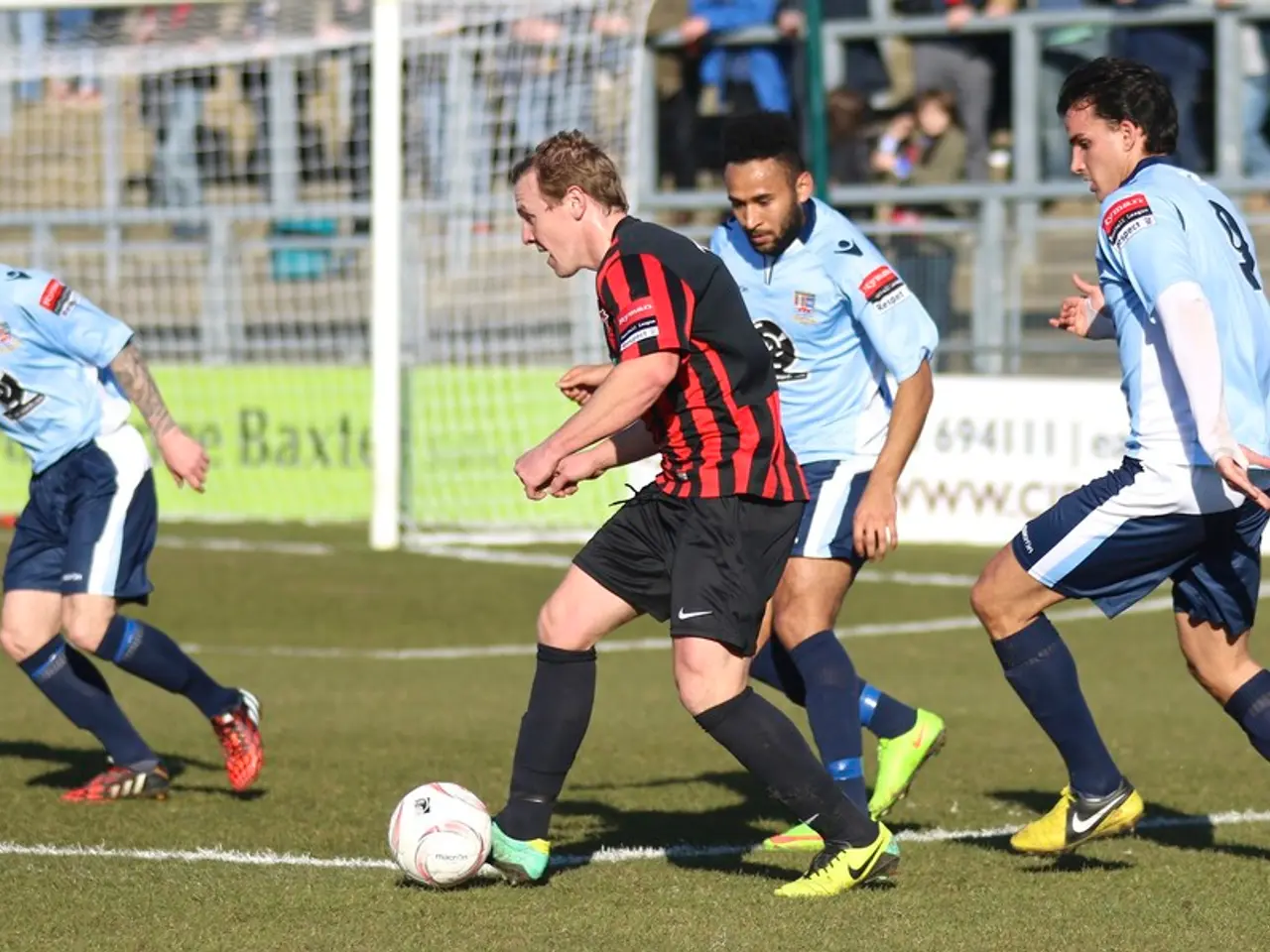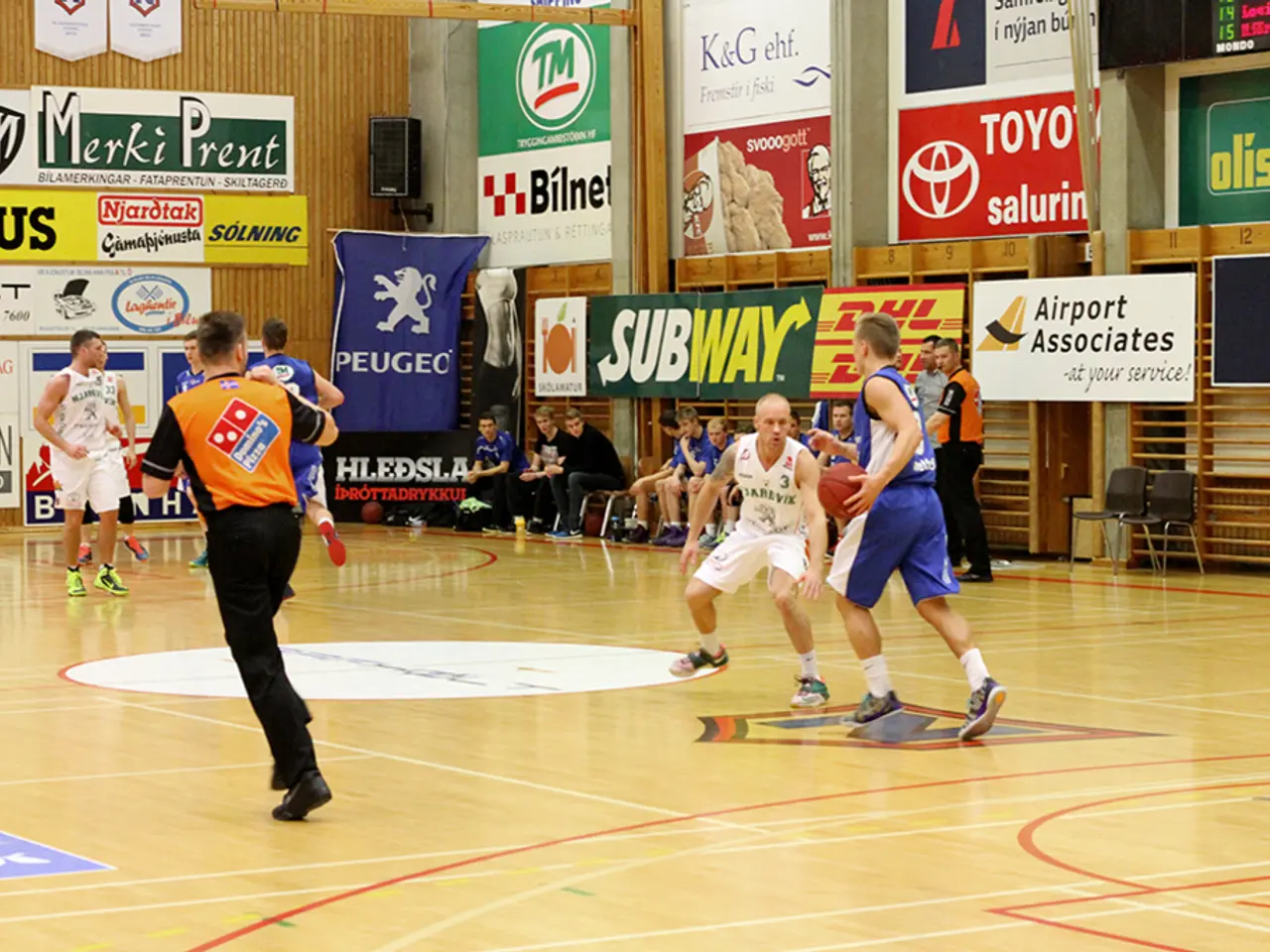Women's Football Team Secures Second Euros Victory - an Unmatched and Incomparable Triumph. Yet, Some Men Express Concern over the Celebration.
In the world of sports, the England Lionesses have been making waves and challenging long-held perceptions about women's football.
Historically, women's football faced significant challenges, including poor facilities, lack of media coverage, inadequate pay, and cultural dismissal. These issues have left deep-rooted negative opinions about the sport, with many viewing it as less competitive or professional.
However, the landscape is gradually changing, especially with the England Lionesses' recent successes. The team's triumphant victory in the Euros final, becoming the first England team to win a major tournament on foreign soil, has helped shift public opinion substantially.
Alessia Russo, Hannah Hampton, Chloe Kelly, and their fellow Lionesses have shown grit, resilience, and unparalleled skill throughout the tournament. Their performances have been nothing short of spectacular, with Chloe Kelly's winning penalty against Spain clocked at 110km/h, faster than the most powerful shot in the men's Premier League last season by Alexander Isak.
The England Lionesses' success has not only boosted visibility and respect for the women's game but also challenged negative opinions. However, challenges remain—such as fluctuations in attendance and TV viewing figures, which recently showed a decline. Critics argue that while social media trends highlight women's football, it still needs to be respected and supported as a serious, elite-level sport to sustain growth.
One of the most significant challenges is the need for sustained fan engagement. While the win against Spain drew a peak live audience of 16.2 million people, making it the most watched television moment of 2025, converting that interest into lasting attendance and financial investment is critical.
Ongoing issues also include the need to combat class-based perceptions in the sport's demographics. Efforts are ongoing to broaden grassroots participation and make the sport more inclusive.
Negative public opinions towards women's football have historically been rooted in neglect, underfunding, and stereotypical perceptions. However, the England Lionesses' success has helped challenge those views, encouraging young girls all around the world to embrace movement and follow their dreams.
Unfortunately, trolling and online hatred seem to be part and parcel of being a professional female athlete in 2025. Opinions like Graham's, who questioned why women's football is being "rammed down our throats" and claimed that female commentators shouldn't be in the men's game, not only divide people but also discourage young girls from embracing sport.
Another report by the Equal Media and Culture Centre reveals that men's football receives 28 times more coverage than women's football. This disparity in media exposure further contributes to negative opinions and the marginalisation of the women's game.
Despite these challenges, the England Lionesses have reshaped the game as we know it. Their spirit, grit, and resilience have inspired a new generation of footballers and fans, proving that women's football is not just a niche sport but a legitimate, high-quality, and exciting competition.
[1] Historically, women's football faced significant challenges including poor facilities, lack of media coverage, inadequate pay, and cultural dismissal.
[2] Public perception was affected by these realities and a lack of visibility in mainstream sports media. The women's game was marginalised, often seen as less competitive or professional. This contributed to negative or diminished opinions about the quality and legitimacy of women's football.
[3] In the UK, and specifically for the England Lionesses, their success on the international stage has helped shift public opinion substantially. However, challenges remain—such as fluctuations in attendance and TV viewing figures, which recently showed a decline. Critics argue that while social media trends highlight women's football, it still needs to be respected and supported as a serious, elite-level sport to sustain growth. The Lionesses' triumphs raise the profile, but converting that interest into lasting attendance and financial investment is critical. Additionally, there has been criticism around the sport being perceived as more "middle-class," potentially alienating traditional football demographics. Efforts are ongoing to broaden grassroots participation and address these perceptions so the sport becomes more inclusive.
[1] The historic challenges women's football faced, such as poor facilities, lack of media coverage, inadequate pay, and cultural dismissal, led to the formation of negative opinions about its competitiveness and professionalism.
[2] Cultural bias, inadequate media coverage, and a lack of financial support reinforced these negative perceptions, seemingly relegating the women's game to niche status and further marginalizing it.
[3] The England Lionesses' recent successes have begun to change this narrative, contributing to a shift in public opinion. Nevertheless, challenges persist, including fluctuating attendance and TV viewership numbers and the need to address perceptions that the sport caters to a more "middle-class" demographic. Addressing these issues will facilitate the growth and inclusivity of women's football.
[4] As the England Lionesses continue to redefine women's football, they inspire a new generation of athletes and fans, proving that the sport is not only legitimate and high-quality competition but also an exciting, mainstream part of sports, fashion, culture, and beauty worldwide.








